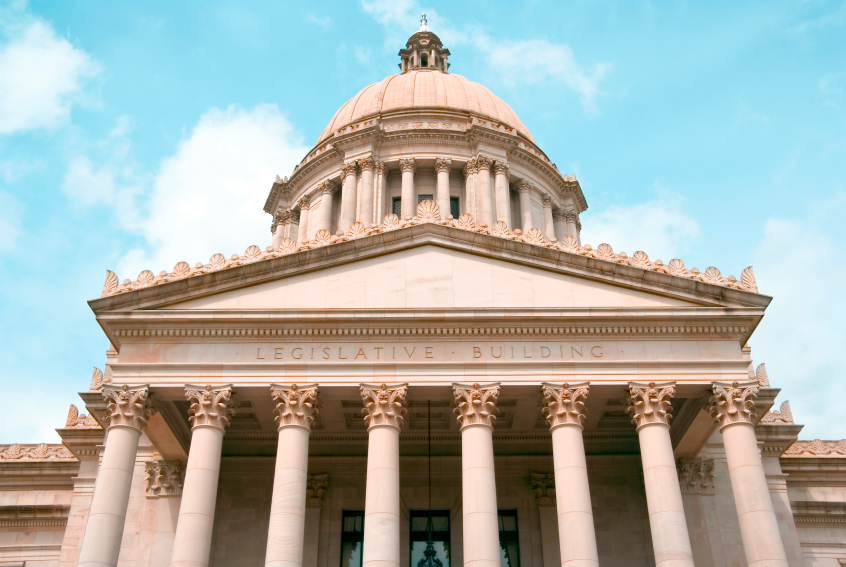 Does mention of the state legislative session make you want to change the subject? Do you shy away from politics and policy wonks, preferring to focus on making your kids' schools the best they can be?
Does mention of the state legislative session make you want to change the subject? Do you shy away from politics and policy wonks, preferring to focus on making your kids' schools the best they can be?
Guess what? The two are not mutually exclusive. In fact, they go hand-in-hand.
And a roundtable of education and child advocates, representing the full spectrum of preschool through higher education, wants to know what it will take to get parents engaged in policy discussions that could impact their kids' education for years to come. They said so at a briefing from the League of Education Voters, providing highlights of Washington's 2014 legislative session, which begins Jan. 13.
Promises, promises
In what has been characterized by Frank Ordway, League of Education Voters government relations director, as a "very crisp ruling," on Jan. 9, the State Supreme Court threw down the gauntlet and told the legislature to come up with a concrete education funding plan by April 30 for each school year between now and 2017-18.
This is a follow-up to the Court's 2012 ruling, commonly known as the McCleary decision, that the state had failed to meet its "paramount" constitutional duty to fund K-12 education. The Court required the legislature to report on progress made in compliance with the decision. Though it acknowledged that the legislature had enacted "a promising set of reforms" and that the 2013 budget cycle was the first opportunity for the legislature to "lay out a detailed plan and then adhere to it," in the Jan. 9 ruling, the Court determined that the state's plan fell short, particularly in the areas of:
— Teacher salaries and cost of living (COLA) adjustments
— Essential materials, supplies and operations costs, which places an unsustainable burden on school districts. Though universal full-day kindergarten and reduced class sizes are state priorities, some districts may lack the physical space to provide them.
— Transportation
There is debate over exactly how much additional funding has been slated for education in the current budget, with estimates ranging from a 6.7 to 11.4 percent increase from previous years.
Either way, the Court expressed concern that only two budget cycles remain for the state to meet the full funding compliance deadline of 2018.
The small down payment made on the McCleary decision during the 2013-14 cycle will require a steep increase in education funding in subsequent budget cycles. The State Supreme Court says that's not good enough.
... it is incumbent upon the State to demonstrate, through immediate concrete action, that it is making real and measurable progress, not simply promises.
The need for immediate action could not be more apparent.
"He is the first person to address the scope of the education revenue problem with numbers that actually add up," Ordway says.
With all the focus on K-12 funding and a call for significant investments in early learning, policy leaders and legislators should protect higher education funding, says House Democrat Larry Seaquist, who represents the 26th District and serves as the chair of the House Higher Education Committee. He and fellow House Democrats have organized an Education Steering Group. He says he is looking to form an alliance of K-12 and higher education advocates, so that the continuum of education funding is protected and the systems are working together.
For history buffs and budding policy wonks, here is a brief history of Washington State education funding.
The lay of the legislative land
Because this is not a budget year (our state operates under a biennial budget) the 2014 legislative session is expected to be a short one, scheduled for 60 days, with legislators anxious to complete their work and return home for campaign season. There is limited money in the supplemental budget. The two legislative chambers have different leadership and different views on government. This will make enacting an agenda difficult. And there's that pesky matter of transportation.
Rep. Seaquist expects education to dominate the legislative agenda and he's concerned about the outcome. "Politics has crept into K-12 budgets," he says. "That's not healthy."
Education funding is not seen as a crisis, says Seaquist, and finding new revenue is a tough sell. "We have to elicit enthusiasm to become a highly educated state."
For the same reasons that parents focus more on individual schools than state policy, some think the education funding model should be revamped to place a heavier influence on local sources of revenue. Local levies tend to do well. State education funding initiatives, not so much, especially in a state with a regressive tax system, such as Washington.
School districts across the nation are evaluating governance and funding models, which suggests that the traditional ways of running and funding school districts may be ripe for change.
What's on the table
You can read LEV's 2014 legislative agenda here.
You'll see a flurry of bills introduced and dealt with or killed. Expect bills on early learning, STEM (science, technology, engineering and math) education, full-day kindergarten and more.
One of the more controversial education bills has to do with strengthening teacher and principal evaluations to comply with federal requirements. Seattle Education Association President Jonathan Knapp says the state teachers union opposes the bill.
"We're very clear that the State does not need to change the teacher evaluation system [overhauled in 2012] again," even though not doing so means that Washington could risk losing its No Child Left Behind (NCLB) waiver.
No Child Left Behind (NCLB), enacted in 2002, required all public schools receiving federal funding to administer annual standardized tests to track student achievement. It sets benchmarks for states to turn around underperforming and failing schools. Though NCLB expired in 2007 and many agree it is outdated, Congress has not agreed on a replacement bill.
The Obama Administration gave states struggling to comply with all the provisions of NCLB the option of receiving a waiver, as long as they agreed to enact certain reforms, including strengthening teacher evaluations and tying them to student achievement.
Thirty-four states, including Washington, currently have waivers set to expire. The renewal process begins this month.
"Its time to stop running scared," Knapp says.
"Washington may be a bellwether for the country" and show that NCLB's time has come and gone."
Here's your takeaway:
Ordway thinks the McCleary ruling and the challenges of fully funding education provide a great opportunity for Washington State to create a world-class education system.
"Education should be the cornerstone of our reputation," he says. "Just as we are known for innovative technology and wine, we should be known for education."
Even if you are the parent of a preschooler, it's worth paying attention to what lawmakers decide.
They are the architects of an education funding model that will impact students for years to come.
But the advocates present at the LEV legislative briefing agreed that it can be hard for parents to support legislation when they don't see the trickle-down effect at their child's school.
"I walked into my child's kindergarten classroom and saw how crowded it was and I wondered, 'didn't we pass a class-size reduction law?'" one advocate recounted.
Education news
Karma cola: Nearly 100 educators will be in Olympia on the first day of the 2014 legislative session to collect sponsor signatures on a bill to restore the voter-approved educator COLA (cost-of-living adjustment).
If the legislature fails to restore the educator COLA this session, teachers, education support professionals, community and technical college faculty, and technical college classified staff will go six consecutive years without a state-funded COLA.




